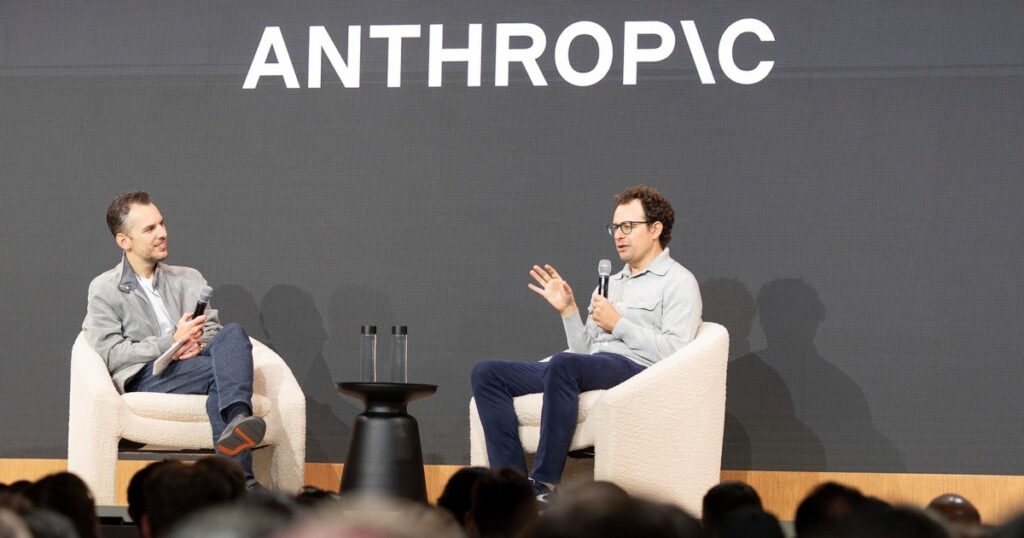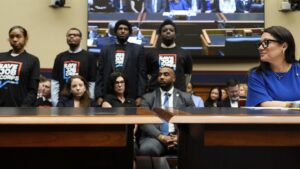
SAN FRANCISCO – A landmark decision by a federal judge has declared that artificial intelligence developers can train models using copyrighted books without authors’ consent, marking a significant precedent in copyright law.
Breaking: Precedent-Setting Copyright Ruling
The ruling, issued Monday in the U.S. District Court for the Northern District of California, was delivered by Judge William Alsup. This decision establishes that training AI systems on copyrighted works constitutes fair use, a pivotal interpretation that could influence numerous ongoing copyright cases.
“The copies used to train specific LLMs were justified as a fair use,” Judge Alsup stated, emphasizing the transformative nature of the technology.
Immediate Impact on Creative Industries
This ruling answers a question that has long troubled creatives across various sectors. With generative AI tools becoming mainstream, concerns have surged over the use of copyrighted works for training AI models, often without the creators’ knowledge or consent.
Since 2023, AI companies have faced a wave of copyright lawsuits from media companies, music labels, and authors. Artists have repeatedly called for stricter regulations on the unauthorized use of their works.
Key Details Emerge from the Case
The lawsuit was initiated by authors Andrea Bartz, Charles Graeber, and Kirk Wallace Johnson, who accused Anthropic of using millions of pirated and digitized books to train its AI models. Judge Alsup ruled that while digital copies of purchased books fall under fair use, downloading pirated copies does not.
Anthropic’s flagship AI model, Claude, and others were deemed “exceedingly transformative,” justifying their use under the fair use doctrine.
Industry Response
In response to the ruling, Anthropic expressed satisfaction with the court’s recognition of their use of copyrighted works as transformative. The company emphasized that their models aim to create new, innovative content rather than replicate existing works.
“We are pleased that the Court recognized that using ‘works to train LLMs was transformative — spectacularly so,'” Anthropic stated.
By the Numbers: Copyright Act’s Fair Use Factors
- Purpose of Use: Transformative use favored fair use.
- Nature of Work: Creative works receive stronger protection.
- Amount Used: Entire works were used but deemed reasonable.
- Market Impact: No displacement of original works’ demand.
What Comes Next for AI Developers
Despite the favorable ruling on fair use, Judge Alsup noted that Anthropic must still face trial for the pirated copies used in its AI training library. The decision underscores the importance of acquiring copyrighted works through legitimate means.
The ruling could influence future licensing agreements between AI developers and content creators, as companies seek to avoid legal pitfalls while advancing AI technology.
Background Context: A History of Legal Challenges
The legal battle over AI’s use of copyrighted materials has been ongoing, with various industries pushing back against what they perceive as unauthorized exploitation of their intellectual property. The tension highlights the need for clear legal frameworks to balance innovation with creators’ rights.
Expert Analysis and Future Implications
Legal experts suggest that while this ruling may not bind other courts, it sets a significant precedent that could shape future cases. The decision reflects a growing recognition of AI’s transformative potential and the complexities of applying traditional copyright laws to new technologies.
As AI continues to evolve, stakeholders across industries will likely seek more definitive guidelines to navigate the intersection of technology and intellectual property.
The story of AI and copyright law is far from over, with ongoing developments expected to further define the landscape of digital creativity and innovation.






